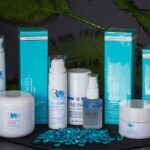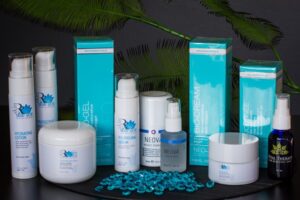How to Develop Custom Skin Care Formulations for Your Brand

Custom Skin Care Formulations
Introduction
In today’s competitive skincare market, offering unique, custom skin care formulations can set your brand apart. Custom formulations allow you to create products tailored to your target audience’s specific needs and preferences.
Why Custom Skin Care Formulations Matter
1. Unique Selling Proposition (USP)
Custom formulations give your brand a unique selling proposition, differentiating your products from competitors. This uniqueness can attract loyal customers who appreciate the tailored approach.
2. Targeted Solutions
Custom formulations allow you to address specific skin concerns and types. Whether it’s acne-prone skin, sensitive skin, or anti-aging needs, tailored products can provide targeted solutions.
3. Brand Identity
Creating custom formulations aligns with your brand’s identity and values. You can choose ingredients and scents that reflect your brand’s philosophy, enhancing brand coherence and recognition.
Steps to Develop Custom Skin Care Formulations
1. Identify Your Market and Audience
Understand your target market and their skincare needs. Conduct surveys, focus groups, and market research to gather insights into the types of products your audience desires.
2. Partner with a Reputable Manufacturer
Choose a manufacturer experienced in creating custom skin care formulations. They should offer flexibility in ingredient selection and formulation adjustments to meet your specifications.
3. Choose High-Quality Ingredients
Select ingredients that align with your brand’s values and resonate with your audience. Consider using organic, natural, and sustainably sourced ingredients to appeal to eco-conscious consumers.
4. Test and Refine
Work closely with your manufacturer to develop initial formulations. Conduct thorough testing to ensure product efficacy, safety, and stability. Gather feedback and refine the formulations as needed.
Key Considerations for Custom Formulations
1. Ingredient Transparency
Consumers increasingly value transparency in skincare products. Clearly communicate the ingredients used, their sources, and their benefits to build trust with your audience.
2. Safety and Compliance
Ensure your custom formulations comply with industry regulations and safety standards. This includes conducting stability testing and obtaining necessary certifications.
3. Sustainability
Incorporate sustainable practices in your formulation process. Use eco-friendly packaging, and consider the environmental impact of ingredient sourcing and production.
Examples of Custom Skin Care Products
1. Private Label Vitamin C Serum
A custom vitamin C serum can target specific skin concerns like dullness and hyperpigmentation. You can choose complementary ingredients like hyaluronic acid for added hydration.
2. Personalized Face Creams
Offer face creams tailored to different skin types and concerns. Custom formulations can include ingredients like peptides for anti-aging, niacinamide for brightening, and ceramides for barrier repair.
3. Specialty Masks and Treatments
Create masks and treatments that address unique skin issues. Custom options can include clay masks for detoxifying, enzyme masks for exfoliation, and hydrating masks with botanical extracts.
Marketing Custom Skin Care Formulations
1. Highlight Customization
Promote the fact that your products are custom-formulated to meet specific needs. Use customer testimonials and before-and-after photos to showcase the effectiveness of your products.
2. Educate Your Audience
Provide educational content about the benefits of custom skincare formulations. Blog posts, videos, and social media content can help inform and engage your audience.
3. Offer Samples and Trials
Encourage potential customers to try your custom products by offering samples or trial sizes. This can help build trust and convert prospects into loyal customers.
Conclusion
Developing Best Custom Skin Care Formulations allows your brand to stand out in the crowded skincare market. By understanding your audience, partnering with the right manufacturer, and emphasizing transparency and quality, you can create products that resonate with consumers and drive brand loyalty.







